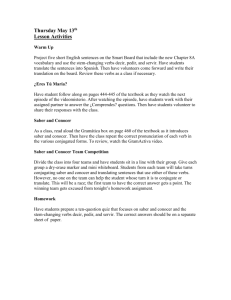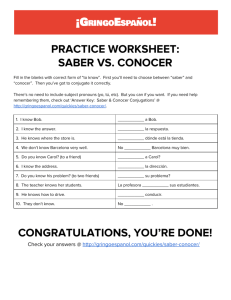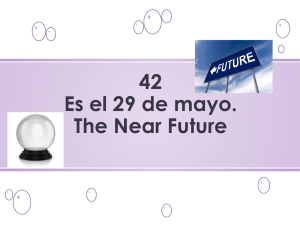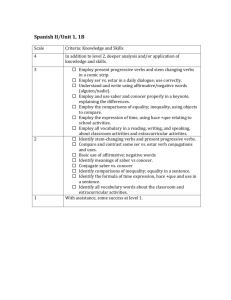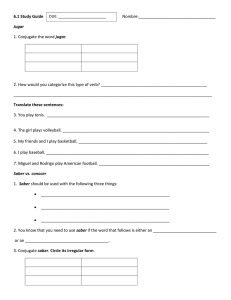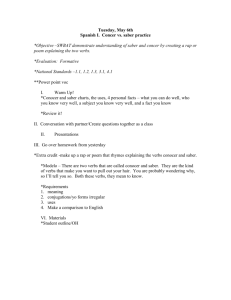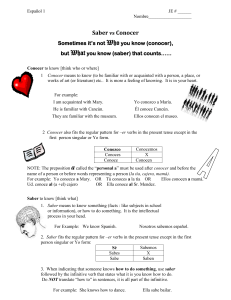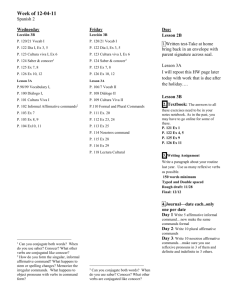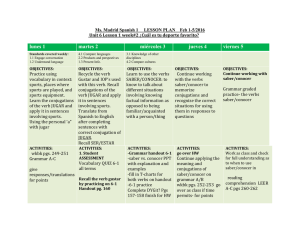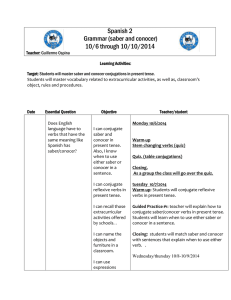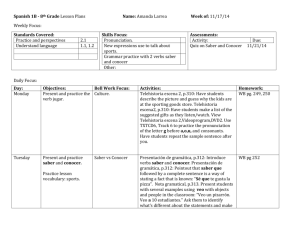File
advertisement
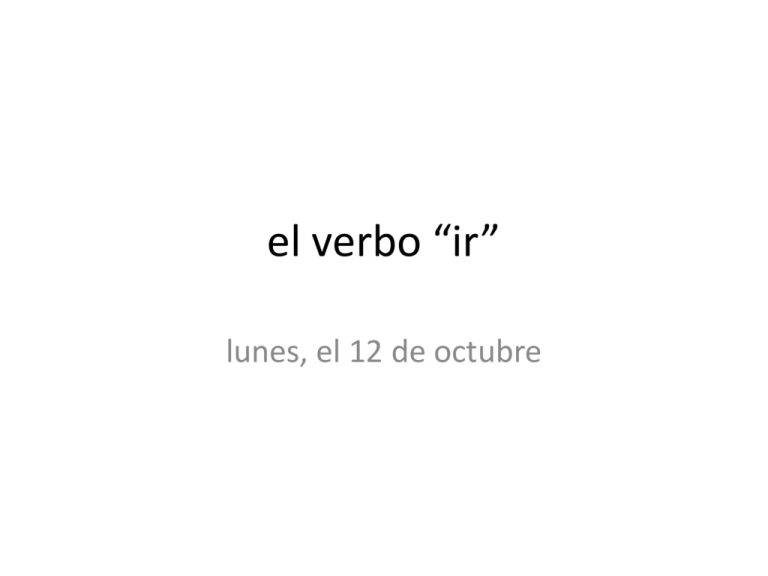
el verbo “ir” lunes, el 12 de octubre ¿Que vamos a hacer hoy? 1. 2. 3. 4. Review “go” verbs Learn the verb “ir” = “to go” Learn ir + a + infinitive Preview “to know” saber vs. conocer “go verbs” (NOT to be confused with the verb “to go”) • • • • • • Tener = to have Hacer = to make, to do They’re called “go” Poner = to put verbs becase the “yo” Traer = to bring forms end in “go”! Salir = to leave Oír = to hear (NOT to listen) Verbo yo form tú form él / ella / Usted nosotros / nosotras vosotros / vosotras ellos / ellas / Ustedes tener tengo tienes tiene tenemos tenéis tienen hacer hago haces hace hacemos hacéis hacen poner pongo pones pone ponemos ponéis Ponen traer traigo traes trae traemos traéis traen salir salgo sales sale salimos salís salen oír oigo oyes oye oímos oís oyen • *tener and oír are “boot” verbs Individualmente… Now, choose an adjective that describes you based on the options you chose… Individualmente… Now, compare your answers with a classmate. Be prepared to share what you learn with the class! El verbo “ir” • Although “ir” ends in –IR (more like… it IS “ir”), we conjugate it more like an –AR verb • Therefore, every form is irregular voy vas va • I go to the store • You go to class. • Voy a la tienda. • Vas a clase. ir = to go vamos vais van Please complete the activity titled “¿Adónde vas?” on the bottom of the signature search worksheet from Friday. So… what if you want to say you are going to do something? Like… in the future? We can use ir + a + infinitive to express the Fuuuuutuuure! • To express things that are going to happen, we use a construction similar to the English one. ir + a + infinitive • I am going to study – Yo voy a estudiar • You are going to play the guitar – Tú vas a tocar la guitarra. • She is going to go to the movies. – Ella va a ir al cine. *“vamos a” can mean “let’s” as in “Let’s dance!” (¡vamos a bailar!) So, it could mean or “Let’s dance” “We’re going to dance” (You use the context of the situation to know which meaning is intended) Rápidamente con un compañero… saber vs. conocer saber vs. conocer • Kinda like ser and estar, there exist two verbs in Spanish that both mean “to know” • However… the meanings are different! • They’re also (almost) regular er verbs! – The only irregularities are in the “yo” form • Let’s take a look… Saber • Used to express knowledge of facts or pieces of information • saber + infinitive to express knowing how to do something saber = to know sé sabemos sabes sabéis sabe saben • Yo sé que Ustedes son muy inteligentes • Ella sabe cantar. Conocer • Used to express knowing a person • Used to express familiarity with things • Can also mean “to meet” • Don’t forget the “personal a” when referring to people! conocer = to know conozco conocemos conoces conocéis conoce conocen • Yo conozco muy bien el campus de ISU. • Mi novio va a conocer a mis padres.
